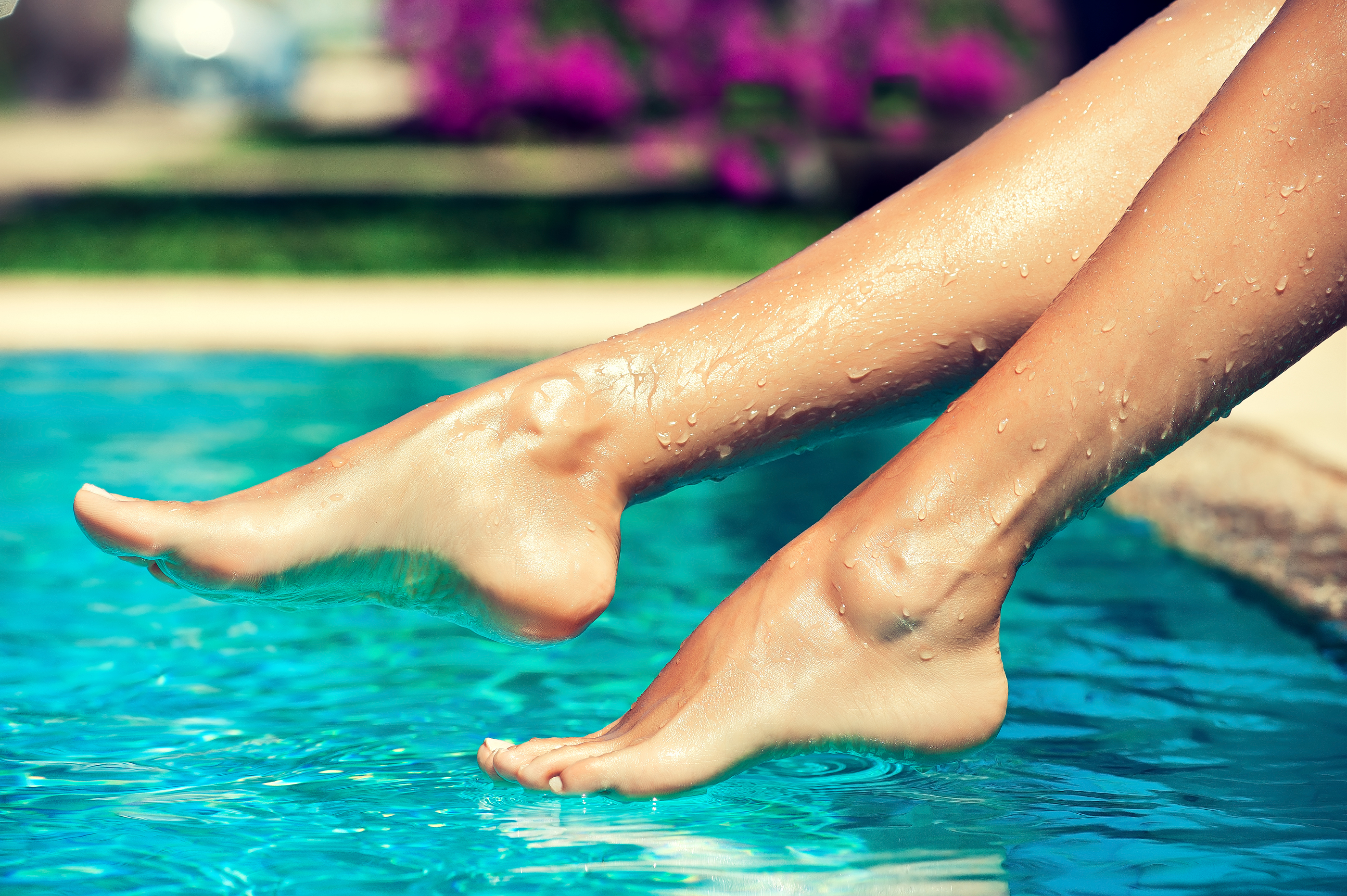-
Swimming Helps Relieve Vein Pain
Posted on March 24, 2016 by Vein Admin in vein healthYour veins are continually working hard against gravity to pump blood back up to the heart from your legs. They have done this your entire life. With gravity pushing back on them at every step, problems can occur over many years. Immersing yourself in a swimming pool removes the gravitational pull on your body. Your veins will thank you for the temporary relief.
Varicose veins are a very common vein disease. They occur when the vein walls are weakened and the valves that normally close and push blood to the heart are damaged. These two problems combined causes a pooling of blood in the veins. This is what you notice as the snaky looking large blue veins that crawl up your leg. Pregnancy, lifestyle habits, age and heredity all determine if you will get these unsightly varicose veins.
Pool water, or any body of water, has density that applies pressure to your body. This compression helps to move your blood through your body, helping out the venous system in the lower legs. It is similar to wearing compression stockings in that the water pressure supports your veins.
Swimming is a wonderful non-impact exercise that will get your cardiovascular system pumping. The increased aerobic activity is good for your lungs and heart. It is easy on your joints and helps to tone your arms, legs and core muscles. Swimming can ease the uncomfortable symptoms of varicose veins such as achiness, heaviness, throbbing, and swelling. It will give you some temporary relief.
You do not need to be an Olympic swimmer to reap the benefits of swimming. Sitting, standing, walking, slow jog, treading water, using a kick board, or leg lift exercises are all beneficial to your vein health. Spending time in a pool on a regular basis is definitely recommended for those with insufficient and damaged veins.
If you would like a FREE online vein screening, go to EVeinScreening.com






